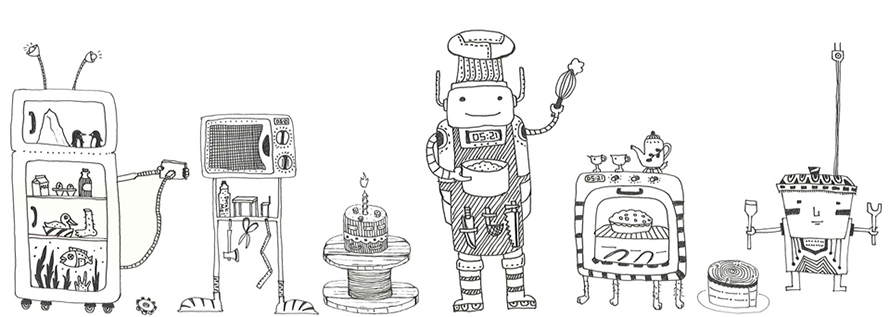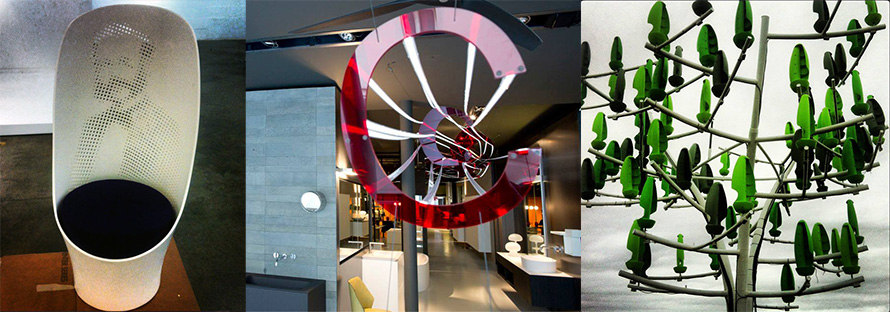11:30 - Morning Session
Bo Gao (Tongji University), Francesca Valsecchi (DESIS), masterclass: Moveable Feasts, Flexible Communication
The 3C (community/communication/creativity) interaction in "Urban Change of China"
The topic of Urban Change is a wide, global and local challenge in which multiple cultures intersect. Due to the complex nature of the topic, it is becoming clearer that designers need to think beyond the physical notion of the city. Urban Change acknowledges that contemporary growing cities are colonizing the world and can no longer be understood as spatial entities. They behave more like living organisms. Like amoebas, today´s cities grow under the conditions of continuous change. The rigidity of form and program has been replaced by an open system in which growth generates conflict and disorder. Cities and living organisms share the capacity to establish an ephemeral physical integrity while remaining unstable in their basic conditions.
In this masterclass, Bo Gao and Francesca Valsecchi will present their Street Food Project, in which students from the college of Design & Innovation at Tongji University and from the University of Applied Arts in Wien answered the call for active, sustainable food by using communication and PSSD design capabilities to imagine the future of Chinese street food. They hope to contribute to a local model of urban growth that can honour the Chinese culinary heritage, provide safe snacks, expand communication between people and open new ways of interaction.

This masterclass will be given in English. Simultaneous translation into Chinese will be available.
Target audience: anyone with an interest in urban design, street food, future of the city. No specific skill is required to attend this masterclass.
Matthieu Cherubini (Royal College of Art, London), masterclass: Designing Ethics in Future Autonomous Products
From lethal battlefield robots to autonomous cars and "smart objects", more and more of our future products will need some form of ethical reasoning due to their increasing level of sophistication. While most of these technologies are making our lives easier and better in numerous ways, they bring to light important issues that need to be addressed before being deployed in our everyday lives.
Do we really want to let machines compute a very human parameters such as ethics on our behalf? How can such a system be designed to accommodate the complexity of ethical reasoning?
The masterclass will aim at exploring these questions by using a speculative design approach.

This masterclass will be given in English only.
Target audience: anyone with an interest in ethics, philsophy of technology, autonomous products, speculative design. No specific skill is required to attend this masterclass.
Dongli Zhang (Transi.st), workshop by Transi.st: Visual Communication Super Powers
Research has revealed that people remember only 10% of what they listen to, 20% of the words they read and about 80% of what they see and put into practice. Visual communication is a powerful tool in product management and problem solving. However, in school, we develop our verbal, quantitative, and analytical skills, and rarely do we work on our visual thinking skills. Far too often, we hear people say they are not creative or they cannot draw.
This workshop will help you build basic visual thinking skills to become a better communicator when presenting complex ideas and solutions.

This workshop will be given in English. Assistants will be present to give instructions in Chinese.
Target audience: anyone with an interest in visual communication, drawing, improving their communication skills. As this workshop will address mostly non-designers, it might not be of interest to people who already have good visual communication skills.
Design of an interactive concept to be presented during the 16:00 workshop (attendance to the 16:00 workshop is not mandatory to take part in this workshop)
Virtual reality opens the door to immersive experiences, challenging the notion of body and self. But why does our body not always react accordingly to the experience provided? How do you challenge the notion of controller and the representation of body in a fully virtual environment?
This workshop will explore the ways in which the body and mind can be challenged. Attendees will design experiments using Oculus Rift headsets and the surrounding LIFT environment as the playground.

This workshop will be given in English. Assistants will be present to give instructions in Chinese.
Target audience: anyone with an interest in virtual reality, experience design, interaction design. No specific skill is required to attend this workshop.
14:30 - Early Afternoon Session
Interactive Design Exhibition Presentation
Lei Yang, curator of the exhibit, will give a few words about Interactive Design today, in China and in the World. He will explain the concept behind this exhibition and give examples of how the various pieces fit and challenge the idea of Interactive Design.
A roundtable with Swiss and Chinese artists will follow, discussing the subject of Digital Art in general and exploring new possibilites of intersection between code, design and entertainment.
This session will be given in English. Simultaneous translation into Chinese will be available.
Target audience: anyone with an interest in interaction design, visual art, digital art. No specific skill is required to attend this session.
Feng Gao (Open Data China), TH Schee (Code for Tomorrow), workshop: Open Data for Business
This workshop will last until 17:15. Attendees to this workshop are requested to remain until the end
Data revolution is here. Open data is a free, public resource that anyone can use without restriction. As estimated by McKinsey, open data can create 3-5 trillion dollars per year. Given this huge promise, how can entrepreneurs in China grasp this opportunity?
The first part of this interactive workshop consists of two talks to introduce what is open data, why people should care about it, how people can grasp this new opportunity to develop new services or improve existing services, and what is the current situation in China.
In the second part of the workshop, participants will be divided into small groups to brainstorm how they can use datasets released by the Shanghai Government (and other open data sources in China) to develop new business opportunities.

This workshop will be given in English. Assistants will be present to give instructions in Chinese.
Target audience: anyone with an interest in open data, big data, data visualization, business opportunities, code, social justice. No specific skill is required to attend this workshop.
Thomas Landrain (La Paillasse), masterclass: Biohacking to Change the World
Over the course of his career, Thomas has encountered and started numerous projects related to biohacking. Exploring the past years of research and development around the world, this masterclass will present some of the most interesting and impactful projects that have been created in the field of biohacking. Embark on a journey through one of the most surprising and powerful branch of collaborative hacking.

This masterclass will be given in English only.
Target audience: anyone with an interest in biology, biohacking, Do-it-Yourself, hacker spaces. No specific skill is required to attend this masterclass.
Arthur Lok (CII), workshop: Designing Smart Cities in Asia
The goal of this workshop is to explore the key trends in the field of smart cities. The workshop will be fun and dynamic. The participants will be working and brainstorming new ideas in a variety of settings and with different groups and sub-groups. We will be exploring a broad range of ideas related to the future, including new trends in mobility, smart infrastructure, citizen engagement, etc.

This workshop will be given in English. Assistants will be present to give instructions in Chinese.
Target audience: anyone with an interest in smart cities, urban change, internet of things. No specific skill is required to attend this workshop.
16:00 - Late Afternoon Session
Claudio Colucci (CC Design), workshop: Green Energy in Urban Spaces
For more than 15 years, Claudio has been creating art in Asia, challenging the concepts of minimalism, dynamism but also activism through design. His manifest "We don't let kids play with matches" touches the subject of nuclear energy and its use in modern society. Not only interested in asking questions about the way we live and interact with our environment, Claudio also works on providing answers such as the Wind Tree, a green energy design that generates power while fitting the urban landscape.
In this workshop, Claudio will present his personal journey to the design of the Wind Tree and will invite the audience to discuss scenarios and ideas to create:
- Social interactions around the Wind Tree; how can it help people meet and discuss energy distribution
- Mobile applications ideas with the Wind Tree; how it can be used to inform the public about energy consumption or to create new business opportunities
- Ideas of hardware extensions; what can we build from the Wind Tree and how does it interact with our lives
Participants will be challenged to think about creative ways to leverage our present knowledge of technology and design to create a more sustainable urban environment.

This workshop will be given in English. Simultaneous translation into Chinese will be available.
Target audience: anyone with an interest in urban design, green energy, sustainable design, activism through art. No specific skill is required to attend this workshop.
Presentation of the concept developed in the 11:30 workshop (attendance to the 11:30 workshop is not mandatory to take part in this workshop)
Virtual reality opens the door to immersive experiences, challenging the notion of body and self. But why does our body not always react accordingly to the experience provided? How do you challenge the notion of controller and the representation of body in a fully virtual environment?
This workshop will explore in which ways the body and mind can be challenged. Attendees will be presented the experiments designed during the 11:30 workshop, using Oculus Rift headsets and the surrounding LIFT environment as the playground.

This workshop will be given in English. Assistants will be present to give instructions in Chinese.
Target audience: anyone with an interest in virtual reality, experience design, interaction design. No specific skill is required to attend this workshop.










